A tribute to Annisul Huq's contribution to music
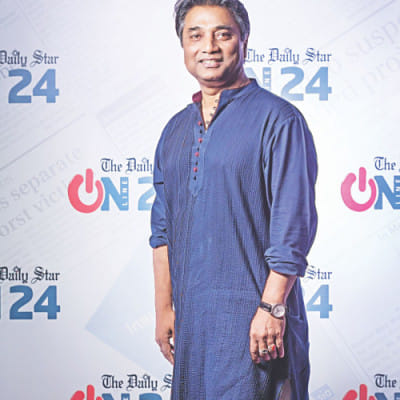
It was late 1980s. Narratives of the Liberation War were by then being systematically erased from national curriculums and psyche. No stories, movies or drama serials on the Liberation War were being aired. The Pakistani Army was by then being referred to as 'Pak Army' or simply 'Occupation Army'. The unexpected revival came about when Annis mentioned poignantly that someone in some nondescript part of Bangladesh found a East German newspaper where on its front page was a dashing image of a Mukti Bahini guerrilla. All other information was in the German language making it impossible for anyone to figure out what the picture was about and what is known of the young handsome man in checkered bush shirt, a gamcha, a khaki three-quarter pant, and barefooted, with an Kalashnikov AK 47 hanging on his shoulder.
The old lady had perchance discovered the newspaper as she went rummaging for food in a trash can. And to her shocked disbelief saw the photograph of her son… “KHOKON!”
With cries of bewilderment she asked everyone around to explain to her what was written in the newspaper, as the picture was that of her son Khokon who had gone to war. Someone from the German Embassy was contacted and in the translation read the heart-wrenching story of this handsome young man who, after a frontal battle with the occupying Pakistani Army, stepped on an anti-personnel mine and was blown to smithereens. This was the last picture of him alive and that too captured by an East German television crew only an hour before he embraced martyrdom. Annis narrated the whole incident and later paused to introduce the martyr's mother at BTV Studio.
I can't remember for how long, but the more-than-1000 guests at BTV Studio watching the whole episode playing out on live TV witnessed this unchecked stream of crying. Floods of emotions continued for over 10 minutes at prime viewing time; the most expensive slot in BTV. Annis broke down as did Setara Begum, the Freedom Fighter's mother, and by the end of the evening the crying became viral across the nation. Donations started pouring in, and in around a month's time Annis took the initiative of setting her up in a semi-concrete tin-shed dwelling with the land and house registered in her name. That's not all, he arranged for free medical treatment for the old lady, as well as a fix deposit of around 100,000 taka; a lot of money those days. He also added a monthly stipend to be delivered to her door every month. Furthermore, Annis promised viewers that he will keep in touch with her regularly and provide updates to her wellbeing in his future shows.
There were some very positive coordinates, indicators and vibes in the persona of Annisul Huq. He was fabulously rich, being the Managing Director of the Mohammadi Group, as well as few other apparel industries. One can combine this with his good looks similar to a Bengali film hero, as well as well coiffured hair which was neither short nor too long and not to mention his well pressed shirt and pants along with panjabis which in themselves became a fashion statement for the 'politically correct Bengali male'. His acceptability came not only from the conservative Tagore loving 'intellectual elites' but also that of the post-1971 Woodstock Hippy Generation, with me a prime mover and shaker of the much derided 'oposhongskriti' or counter-culture label hanging as a Damocles sword on our already badly bruised shoulder. Annis, however, had earned the acceptability of my generation in that we admired his openness, his passion to be brutally frank and his infectious charisma.
To be honest – us, rebels from the new generation, believed in 'change' and while we were not interested in politics per se, we were shocked at the politicization. We were a square peg, and one too many round pegs were most unfairly being driven into us. We couldn't bear this. We had to revolt and we would use culture and music as our foremost weapon of choice.
Against these backdrops all was good but I wasn't too sure if Annisul Huq was attuned to our more Western and secular Bangladesh cultural upbringing which had evolved after the Liberation War of 1971. We were, after all, the 90's rebels.
We had realized by then that our cultural struggle had to be frontal and to that end, I was looking for the perfect opportunity to 'confront' Annisul Huq and seek his help in the way forward to Bangladesh's cultural struggle. There had been way too many confrontations in the newspapers and magazines and we did our shout outs, but we always lost in the end. The opportunity had to be televisions and the opportunity presented itself through Annisul Huq's wife Rubana Huq who was my friend at the Dhaka University, Department of English.
TO BE CONTINUED
Maqsoodul Haque (Mac) is a columnist and a jazz-rock fusion musician.

 For all latest news, follow The Daily Star's Google News channel.
For all latest news, follow The Daily Star's Google News channel. 


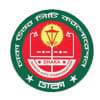
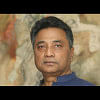
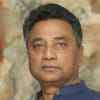
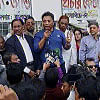

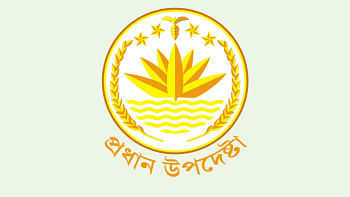
Comments